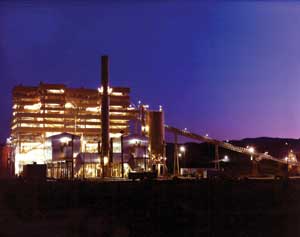February 2010
 View Full Print Edition
View Full Print EditionBusiness Briefs
Columns

If Past is Prologue …
By Bob Dinneen

State of the Ethanol Industry-2010 and Beyond
By Gregory J. Lynch and Porter J. Martin

The Industry Demands Greater Demand
By Mike Bryan

Making Sense of Indirect Land Use?
By Rona Johnson

SCR Systems Go Mainstream
By Bob Gray and Doug Haugh

Feeling the Effects
By Ron Kotrba
Featured

Searching for the Next Iowa
By Kris Bevill
As the number of corn ethanol producers stabilizes, companies are expanding their efforts out of the Corn Belt and into regions of the country that currently use ethanol, but do not produce it. Florida has many proposed projects and a massive market for ethanol, but no local producers. Could the Citrus State be poised to become the next Iowa?

Incentives: It's All About Location, Location, Location
By Erin Voegele
Although federal programs and policies that support the production, distribution and use of ethanol are crucial to the continued development of the industry, many states have taken additional measures to ensure ethanol's success.

Driving Up Demand
By Erin Voegele
Overcoming the E10 blend wall and increasing the market for ethanol-blended fuels is not only important in sustaining first-generation producers, but is also vital to ensuring industry growth and support for second- and third-generation producers. An important component in lifting the blend wall is increased use of flex-fuel vehicles and E85.

Delivering Renewable Results
By Susanne Retka Schill
Solid Canadian backing for renewable fuels mandates and positive benefits from biofuels energized the Canadian Renewable Fuels Summit.
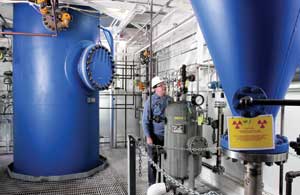
Development to Deployment
By Rona Johnson
For 68 years, the Gas Technology Institute has been advancing new technologies to ensure the world has access to an abundant, affordable energy supply.
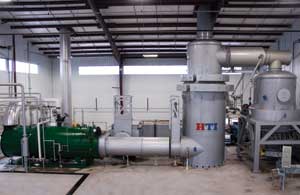
Gasification Guru
By Anna Austin
Touting feedstock flexibility as the key to a lucrative biomass gasification operation, Heat Transfer International predicts 2010 will be an extraordinary year for business and the industry in general.
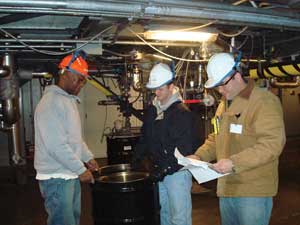
Syngas Tasks
By Lisa Gibson
Sufficiently cleansing and efficiently reforming syngas are complicated elements of gasification for biofuels production and continued research seeks to optimize both.

Carbon Capacity
By Lisa Gibson
A New York company is building on the results of a study by Columbia University researchers to optimize solid fuel-to-energy conversions, with a new and surprising reactive medium in biomass gasification: carbon dioxide.

Europe's Diesel Portfolio
By Nicholas Zeman
Auto manufacturers in Europe are committed to the diesel platform, touting their environmental programs and having abundant access to biodiesel, but they have been slow to support or incorporate methyl esters as an official part of their business models and carbon reduction schemes.

Canadians Backing Biofuels
By Susanne Retka Schill
Solid Canadian support for renewable fuels, along with new mandates and positive results from biofuels development, undergird a positive outlook at the Canadian Renewable Fuels Summit.
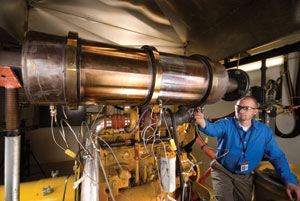
Year of the SCR System
By Ron Kotrba
This year marks the onset of widespread commercial application of selective catalytic reduction systems for on-highway diesels, to reduce nitrogen oxide emissions per U.S. EPA regulations. Researchers say there are no short-term negative effects from using biodiesel blends in diesel SCR systems, but long-term performance is much less understood.

Plant to Pump Paradigms
By Nicholas Zeman
Many biodiesel producers consider their customer lists proprietary, but whether it's a small plant in Texas that has off-take agreements with retail stations in the immediate vicinity, or a large, corporate-owned facility working for ExxonMobil shipping fuel all over, Biodiesel Magazine traces methyl esters from source to spigot.
Contributions

The Proof Is In the Profit
By Terry Lash
Ethanol research center investigates new technologies to benefit the biofuel industry

Nanotech Products Increase Efficiency and Energy Saving
By KHATEREH A. PISHRO & FRANCESCA M. CROLLEY
More than 800 manufacturer-identified nanotech products are publicly available, with three to four new ones hitting the market each week.

Meeting the Challenge of Conducting Biomass-Related Business in Brazil
By Felipe Tavares, Thiago Carneiro and Aldemir Marrei
Starting up a business in a foreign country such as Brazil can be quite challenging and some setbacks can arise. That shouldn't discourage investment from foreign companies and start-up ventures, however, for a simple reason: Brazil offers remarkable advantages.
Maximizing uptime and throughput are key factors enabling the country's largest biomass power plant to consistently turn a profit.




